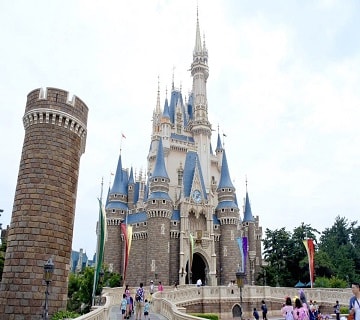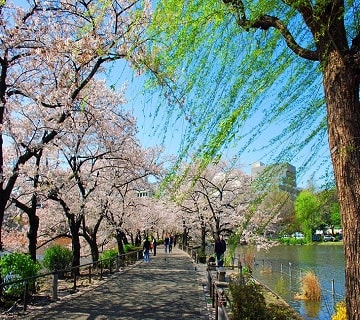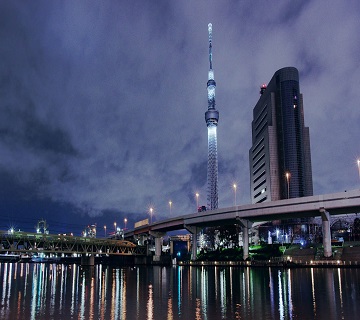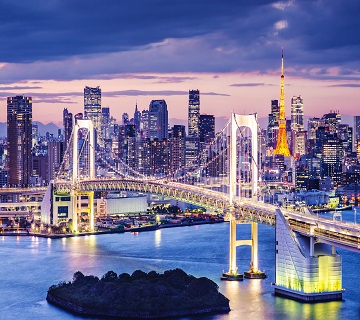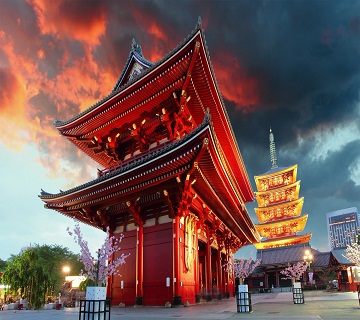Venue & Hospitality
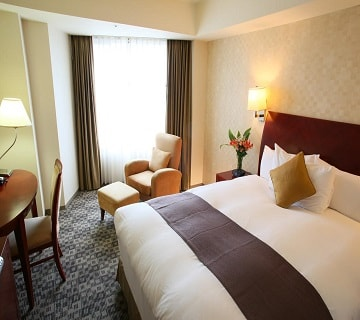
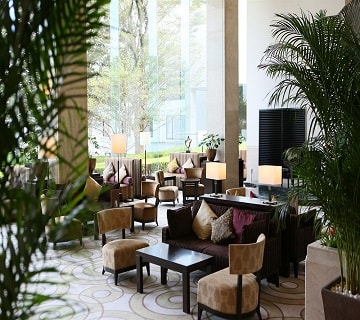

City Highlights
About City
Tokyo is Japan’s capital where the International Conference on Mechatronics and System Engineering is being held in November 28-29 2018, is the home to all top companies, financial market, broadcasting industries and research Centre. Also it is the largest metropolitan area in the world. It is also one of Japan’s 47 prefectures, consisting of 23 central city wards and multiple cities, towns and villages west of the city centre. The Izu and Ogasawara Islands are also part of Tokyo. World’s highest Skywalk- the Tokyo Sky tree is the tallest free-standing tower in the world, measuring 634m. The observation deck at 450m is the world’s highest skywalk and offers panoramic views of the city.
The Izu Islands are a group of volcanic islands and form part of the Fuji-Hakone-Izu National Park. The islands in order from closest to Tokyo are Izu ÅŒshima, Toshima, Nii-jima, Shikine-jima, KÅzu-shima, Miyake-jima, Mikurajima, HachijÅ-jima, and Aogashima. The Izu Islands are grouped into three subprefectures. Izu ÅŒshima and Hachijojima are towns. The remaining islands are six villages, with Niijima and Shikinejima forming one village.Tokyo has numerous outlying islands, which extend as far as 1,850 km (1,150 mi) from central Tokyo. Because of the islands' distance from the administrative headquarters of the Tokyo Metropolitan Government in Shinjuku, local subprefectural branch offices administer them.
Climate:
The former city of Tokyo and the majority of mainland Tokyo lie in the humid subtropical climate zone (Köppen climate classification Cfa), with warm humid summers and generally cool winters with cold spells. The region, like much of Japan, experiences a one-month seasonal lag, with the warmest month being August, which averages 26.4 °C (79.5 °F), and the coolest month being January, averaging 5.2 °C (41.4 °F). The record low temperature is −9.2 °C (15.4 °F) on January 13, 1876 while the record high is 39.5 °C (103.1 °F) on July 20, 2004. Annual rainfall averages nearly 1,530 millimetres (60.2 in), with a wetter summer and a drier winter. Snowfall is sporadic, but does occur almost annually. Tokyo also often sees typhoons every year, though few are strong. The wettest month since records began in 1876 was October 2004 with 780 millimetres (30 in) of rain, including 270.5 millimetres (10.6 in) on the ninth of that month.
Transportation:
Tokyo, as the center of the Greater Tokyo Area, is Japan's largest domestic and international hub for rail, ground, and air transportation. Public transportation within Tokyo is dominated by an extensive network of clean and efficient trains and subways run by a variety of operators, with buses, monorails and trams playing a secondary feeder role. There are up to 62 electric train lines and more than 900 train stations in Tokyo.
Rail is the primary mode of transportation in Tokyo, which has the most extensive urban railway network in the world and an equally extensive network of surface lines. JR East operates Tokyo's largest railway network, including the Yamanote Line loop that circles the center of downtown Tokyo. Two different organisations operate the subway network: the private Tokyo Metro and the governmental Tokyo Metropolitan Bureau of Transportation. The Metropolitan Government and private carriers operate bus routes and one tram route. Local, regional, and national services are available, with major terminals at the giant railroad stations, including Tokyo, Shinagawa, and Shinjuku.
Universities in Tokyo, Japan:
National Universities
Aeronautical Safety College
Hitotsubashi University
National College of Nursing
National Fire Fighters' Academy
National Graduate Institute for Policy Studies
National Police Academy
Ochanomizu University
Tokyo Gakugei University
Tokyo Institute of Technology
Tokyo Medical and Dental University
Public Universities
Advanced Institute of Industrial Technology
Tokyo Metropolitan University
Private Universities
Aoyama Gakuin University
Bunka Gakuen University
Gakushuin Women's University
Hoshi University
Nihon Bunka University
Tokyo University of Science
The largest cities in the world by land area, population and density Ranked by population:
|
Rank |
City / Urban area |
Country |
|
1 |
Tokyo/Yokohama |
Japan |
|
2 |
New York Metro |
USA |
|
3 |
Sao Paulo |
Brazil |
|
4 |
Seoul/Incheon |
South Korea |
Reputed Scientists from City:
Katsushi Ikeuchi
Hisao Ishibuchi
Masayuki Murata
Yoshihiko Nakamura
Hiromasa SUZUKI
Fumiyuki Adachi
Fumihito Arai
Toru Ishida
Satoshi Matsuoka
Satoshi Nakamura
City Attractions
Towers:
Tokyo Skytree
Tokyo Tower
Parks:
Tokyo DisneySea
Odaiba
Ueno Park
Yoyogi Park
Hanayashiki
Sanrio Puroland
Joypolis
Tokyo Disney Resort
Museum:
Harajuku
Ghibli Museum
Edo-Tokyo Museum
Nezu Museum
KichijÅji
Temples, shrines, and other historical sites:
SensÅ-ji
Meiji Shrine
Tokyo Imperial Palace
Ueno Zoo
Roppongi Hills
Hamarikyu Gardens
Edo Castle
Nakamise Shopping Street
Mount Mitake
Venue
Hotel Ana Crowne Plaza Narita, 68 Horinouchi, Narita-shi, Chiba, 286-0107, Japan

